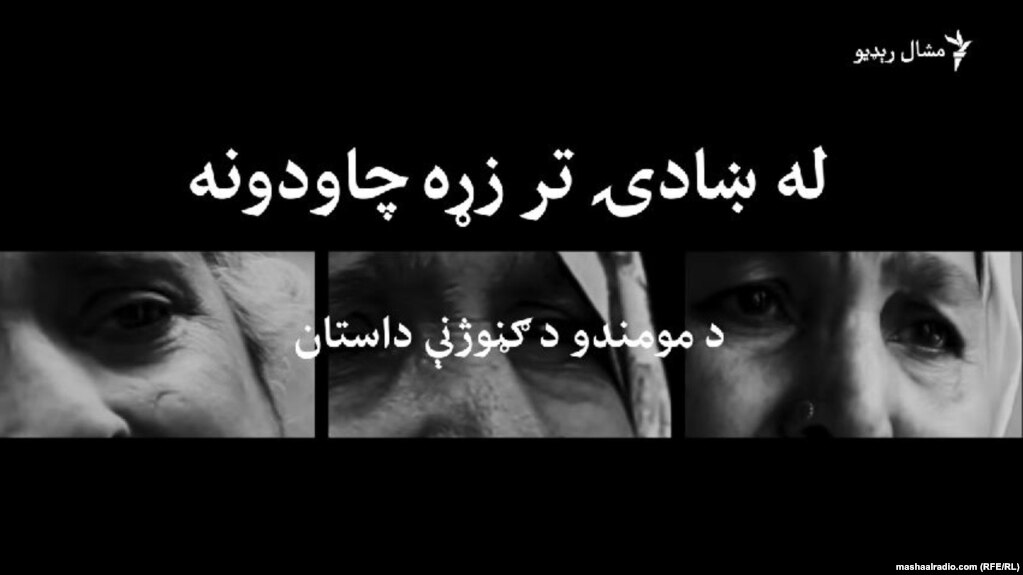RFE/RL’s Radio Mashaal Marks 10 Years Of Countering Extremism In Pakistan
Ten years since airing its first two-hour broadcast, RFE/RL’s Pashto-language service has stubbornly pursued its mission to provide an alternative to extremist propaganda.

WASHINGTON, D.C. – Ten years since airing its first two-hour broadcast, Radio Mashaal, the Pashto-language service of Radio Free Europe/Radio Liberty (RFE/RL), has stubbornly pursued its mission to provide an alternative to extremist propaganda, while innovating on new platforms to reach an ever-growing audience in regions vulnerable to the Taliban and militancy.
“Radio Mashaal was set up to counter ‘mullah radio’ and the recruitment efforts of extremist groups in the volatile tribal regions along Pakistan’s border with Afghanistan,” said RFE/RL President Jamie Fly. “On their 10th anniversary, RFE/RL salutes Radio Mashaal journalists, who, day after day, provide critical, unflinching reporting in one of the world’s most dangerous environments and promote hope among their local audiences in peace.”
Reflecting on the last decade, Radio Mashaal Director Amin Mudaqiq said, “When we launched, the young people thought they had to protect their rights with guns. Today, they are defending their rights with democratic means.” He added, “Radio Mashaal is a voice of the people in their language in this region, and I believe we have played an important role.
Radio Mashaal’s impact is driven by its unique content, which includes programs dedicated to youth, education, minority rights, local politics, militancy, community issues, and cricket. It has been instrumental in promoting polio vaccination programs among Pakistan’s remote communities. Prominent Pakistani women’s rights advocate Gulalai Ismail has lauded its attention to women’s issues; audience members routinely praise it for providing a platform for the discussion of ordinary people’s problems in a region where media is otherwise not free to cover such issues.
Said Senior Editor Daud Khattak, “Of course we report on the bombs, but we also report when it’s quiet about the human stories, about people, when other media have left.”
The Service’s reporting is supported by an aggressive digital strategy, which it adopted in response to the spread of mobile phones in the region and extremist content online. It currently has 2 million followers on Facebook, 150,000 followers on YouTube, and 90,000 on Twitter. In 2019 it registered 110 million combined video views on Facebook and YouTube, proving itself a powerful competitor among the Internet’s numerous extremist groups. At the same time, Mashaal is no less committed to radio, now broadcasting nine hours of original programming daily to reach remote audiences that lack access to the Internet and TV.
Radio Mashaal’s coverage has made it a frequent target of militant groups and criminal gangs. It has also been subject to inordinate pressure from Pakistan’s Inter-Services Intelligence Agency, which ordered the closure of its Islamabad bureau in January 2018, accusing its journalists of working “against the interest of Pakistan.” Mashaal has steadfastly continued to report, having moved many of its operations to Prague. Its website was blocked intermittently in Pakistan this last year in what may be an additional effort by authorities to suppress its reporting.
For more information, contact press@rferl.org.
###
About RFE/RL
Radio Free Europe/Radio Liberty (RFE/RL) is a private, independent international news organization whose programs — radio, Internet, television, and mobile — reach influential audiences in 23 countries, including Russia, Ukraine, Iran, Afghanistan, Pakistan, the republics of Central Asia and the Caucasus. It is funded by the U.S. Congress through USAGM.